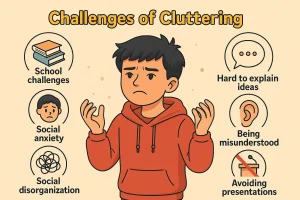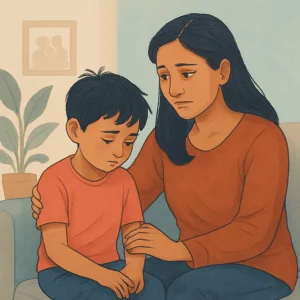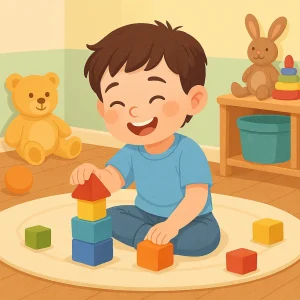How to Find the Right Marriage Counsellor?
By Prapoorna M
Last Updated: November 27, 2021
There are times when things don’t work as planned when time decides to play with us, or maybe we are not ready for what comes out on our way. Marriage is a bond that not only brings two people together, but also combines two different worlds, to build a home. It’s true that everyone tries to adjust to these new changes that occur in life and welcome that person into our world. But if everything seems to be perfect, what would be there to worry about? Reasons could be many but finding the ways to make the marital life meaningful, requires a great mind.
Though it’s a few days after marriage or a long time, we should get alerted when things go wrong. As days pass by, some undetectable snags could creep into your relationships in the form of unavoidable daily chores, work pressures, issues with close relatives like in-laws, increased screen timings or gadget timings, financial hurdles etc. leaving your inner being so lonely. An astonishing fact is that studies say that the relationship of one in every four couples is in crisis!!!

So, it’s really an appreciable step you took that you are looking forward to meet a relationship or marital counsellor to make things better between you both. While you opt to have a marriage counselor who will resonate with your thoughts and advise you better, you should also go through the list of requirements in choosing your therapist below.
How to Identify a Better Psychologist?
In order to identify a better psychologist, you should be patient enough to track one and follow the below steps.
- First of all, identify a psychologist/psychiatrist near you.
- Information regarding the credibility of the counsellor could be gathered either by word of mouth or by looking at the website.
- Ask people around about the treatment of the counselor. Read the reviews, both positive and negative.
- Relationship between client and counselor is based on respect and trust for each other.
- A good psychologist wouldn’t use evaluative terms regarding the client’s behavior and feelings.
- He/she would make the client reflect upon their own behavior and then analyze if they are appropriate or not.
- They make the client realize what behavior has to be changed and how
A good psychologist would adopt any of the two approaches:
- Direct approach – where he tells the client what to do
- Indirect approach – where he makes the client identify appropriate actions
Any of these approaches adopted, depend on the factors like nature of crisis (if emergency) mental status of client (if they need medicines) education of client, characteristics, kind of social support available to the client, asking probing questions, seeking clarifications, and supporting positive behavior.
If a psychologist/psychiatrist has most of these qualities, the client would be ready to work with the counselor at a deeper level. A counselor maintains confidentiality and anonymity. He’ll never discuss a case with anybody. The trust between them has to be nurtured and protected.
Read more: Relationship Counselling Online
Things You Need to Look for
The marriage counselor should possess the essential qualities to be a professional marriage counsellor. Apart from being a genuine certification holder, the person should also have some experience, which
probably adds a cherry on the cake.
- Perform some ground check if the therapist is experienced and is genuinely qualified.
- How long if he/she has been practicing the couple’s therapy
- Enquire about any advanced training they have
- If he/she is licensed for couple counseling (may not be applicable in all countries)
- Try to know how long the sessions can be to have an estimate of whether they can get an idea of your problem.
- You may also enquire if the counsellor is happily married and living with kids to discuss your problem comfortably rather than the one being unmarried or divorced.
How can I find a good and suitable psychologist?
Here are some steps to be followed in order to find a good and suitable psychologist for you.
- Firstly, identify the need for a psychologist.
- Then, know which specialization you need in a psychologist.
- Identify the problem to know whom else does it involve like your family, friends, coworkers etc.
There are qualities of a good psychologist you can identify. A Psychologist
- Should be genuinely interested in helping
- Should be able to empathize with the client
- Should identify the emotions of the client
- Should have experience in handling such cases
- Should be objective in their assessment
- No prejudice should cloud their thinking
- Should be able to listen to clients patiently
- Shouldn’t pass evaluative judgments
- Should be theoretically sound and
- Should be able to judge if they need medical attention (need to identify if they should be sent to psychiatrists or any other specialist)
Qualities to Look for in a Marriage Counselor
| Quality | Description | Why It Matters |
|---|---|---|
| Credentials | Proper licensing and certifications in marriage and family therapy. | Ensures the counselor has the required education and training. |
| Experience | Years of practice and familiarity with issues similar to yours. | Indicates practical skills and success in handling similar cases. |
| Approach to Therapy | The counselor’s methodology, whether it’s more directive or collaborative. | Compatibility with your preferences can affect the therapy’s success. |
| Communication Style | How the counselor communicates, including clarity, warmth, and openness. | Affects how comfortable you feel sharing personal information. |
| Availability | The counselor’s office hours, flexibility, and session lengths. | Ensures the counseling fits into your schedule and lifestyle. |
| Reviews and Testimonials | Feedback from previous clients about their experiences. | Provides insight into the counselor’s effectiveness and client satisfaction. |
Know more about Online Counselling
Can the Counselors be Trusted?
It is always about your comfortable place and mood to open up and pour your heart out when dealing with relationships. Counselling is much helpful in finding the ways to deal with the problems when seeking suggestions from our trusted friends and family doesn’t seem to be effective. Counselors are trained professionals who are very trustworthy.
Couples generally come to counselling when they realize that their relationship is in some kind of trouble. Sometimes the problem is so significant, or has been left unattended for so long, that the relationship is already in severe crisis. At other times, the couple becomes aware at an earlier stage that they are not able to resolve their problems on their own, and that they need the help of a relationship counsellor before their relationship hits crisis point and heads to dissolution.
But, the effectiveness of any kind of counselling therapy depends upon how openly you can discuss your problem, and how clearly you can communicate with the counsellor by practicing the techniques they offer.
Know more on Why Do You Need a Therapist? | How Does Counseling Cater Your Emotional Needs?
Online Counseling
With Online counseling, as you can converse at the ease of being at your comfortable place, it helps you to share your embarrassing secrets in a clear way. As you can go anonymous, getting perfect solutions even for your darkest problems becomes much easier for you. Online marriage counseling is highly beneficial when
- When both the husband and wife are at different locations at the time of counseling and want to participate in the session.
- When the couple at a far off place want to connect with the counsellor remotely.
- When the couple doesn’t want to see each other but want to participate in the counselling.
- If you want to join any other persons from family who needs to be involved, in the session, while them being at a far off distance.
Discover more in our article Nature of Grief | How does grief end?
So it’s all about your convenience and comfort. Be open when you really want the best results.

Common Challenges in Marriage and How Counseling Can Help
| Challenge | Impact on Relationship | How Counseling Helps |
|---|---|---|
| Communication Issues | Leads to misunderstandings, conflicts, and feelings of neglect. | Teaches effective communication skills and active listening techniques. |
| Financial Disagreements | Causes stress and arguments over budgeting, spending, and financial planning. | Facilitates open discussions about finances and helps establish common goals. |
| Infidelity | Damages trust and can lead to emotional distancing or separation. | Offers a space for healing, rebuilding trust, and strengthening the relationship. |
| Sexual Dissatisfaction | Decreases intimacy and can affect self-esteem and partnership. | Addresses concerns openly, explores desires, and improves intimacy. |
| Parenting Conflicts | Creates tension over differing parenting styles and family dynamics. | Helps align parenting approaches and unifies the family structure. |
| Balancing Work and Family | Leads to stress, burnout, and neglecting relationship needs. | Encourages setting priorities, managing time effectively, and fostering work-life balance. |
| Lack of Intimacy | Results in a loss of connection and mutual support. | Explores underlying issues, enhances emotional connection, and promotes affectionate actions. |
| Dealing with Extended Family | Triggers disputes over boundaries, interference, and expectations. | Assists in setting healthy boundaries and improving family dynamics. |
Also read: Ways for Effective and Positive relationships at the Workplace
What do you Think Could Change?
Some of the different changes that are expected either explicitly or implicitly by counselors are the following:
• Insight: The acquisition of an understanding of the origins and development of emotional difficulties, leading to an increased capacity to take rational control over feelings and actions.
• Relating with others: Becoming better able to form and maintain meaningful and satisfying relationships with other people, for example, within the family or workplace.
• Self-awareness: Becoming more aware of thoughts and feelings that had been blocked off or denied and developing a more accurate sense of how self is perceived by others.
• Self-acceptance: The development of a positive attitude towards self, marked by an ability to acknowledge areas of experience that had been the subject of self-criticism and rejection.
• Self-actualization or individuation: Moving in the direction of fulfilling potential or achieving an integration of previously conflicting parts of self.
• Enlightenment: Assisting the client in arriving at a higher state of spiritual awakening.
• Problem-solving: Finding a solution to a specific problem that the client had not been able to resolve alone. Acquiring a general competence in problem-solving.
• Psychological education: Enabling the client to acquire ideas and techniques with which to understand and control behavior.
• Acquisition of social skills: Learning and mastering social and interpersonal skills such as maintaining eye contact, turning in conversations, assertiveness, and anger control.
• Cognitive change: Modification or replacement of irrational beliefs or maladaptive thought patterns associated with self-destructive behavior.
• Behaviour change: Modification or replacement of maladaptive or self destructive patterns of behaviour.
• Systemic change: Introducing change into the way social systems (e.g., families) operate.
• Empowerment. Work on skills, awareness, and knowledge that will enable the client to take control of his or her own life.
• Restitution: Helping the client to make amends for previous destructive behavior.
• Generativity and social action: Inspiring in the client a desire and capacity to care for others pass on knowledge (generativity) and to contribute to the collective good through political engagement and community work.
Conclusion
Finding the right marriage counselor is a crucial step toward healing and strengthening a marriage. It involves seeking a qualified professional who resonates with both partners’ thoughts and needs. A suitable marriage counselor should have the right blend of credentials, experience, and approachability, alongside a genuine interest in helping couples navigate their challenges. They should be able to establish a trusting and respectful relationship with their clients, employing either direct or indirect methods to guide them toward self-reflection and positive change. Furthermore, the marriage counselor should be capable of fostering insightful discussions, encouraging self-awareness, and facilitating both individual and collective growth within the relationship.
The importance of selecting an appropriate wellness hub or platform for counseling cannot be overstated. A well-chosen counselor or therapy platform provides a safe and confidential space for couples to explore and address their issues, leading to improved communication, problem-solving skills, and relationship satisfaction. Whether opting for traditional in-person counseling or the flexibility of online sessions, the key lies in finding a supportive and effective environment that aligns with the couple’s specific needs and goals. In doing so, couples can work towards achieving a healthier, more fulfilling marital relationship, underscored by a strong foundation of mutual understanding and respect.
Frequently Asked Questions:
1. What is Marriage Counseling?
Marriage counseling, also known as couples therapy, is a type of psychotherapy that helps couples of all types recognize and resolve conflicts to improve their relationships. It provides partners with tools to communicate better, negotiate differences, problem solve, and even argue in a healthier way.
2. How Do I Know If We Need Marriage Counseling?
If you’re experiencing constant conflict, feelings of dissatisfaction, emotional detachment, or facing specific challenges such as infidelity, financial strain, or parenting disagreements, it might be time to consider marriage counseling.
3. What Criteria Should I Use to Choose a Marriage Counselor?
When selecting a marriage counselor, consider their credentials (licensure and certifications), experience in couples therapy, and familiarity with your specific issues (e.g., financial disputes, infidelity, sexual dissatisfaction). It’s also important to choose someone whose therapeutic approach aligns with your values and relationship goals. Compatibility with the counselor is key, as therapy involves open, honest communication.
4. Is Online Marriage Counseling Effective?
Online marriage counseling has been shown to be just as effective as in-person therapy for many couples. It offers greater flexibility, accessibility, and sometimes comfort, allowing partners to engage in therapy from their own space. Particularly for those with busy schedules, living in remote areas, or with mobility issues, online counseling can be a valuable resource.
5. What Benefits Does Marriage Counseling Offer?
The benefits of marriage counseling include improved communication skills, greater understanding of each other’s needs and perspectives, enhanced intimacy and emotional connection, effective conflict resolution strategies, and overall a stronger, more satisfying relationship. Counseling can also help couples make thoughtful decisions about their future together, whether that involves staying together or parting ways amicably.
6. How Quickly Can We Expect Results from Marriage Counseling?
The timeline for seeing results from marriage counseling varies significantly among couples. Some may experience improvements within a few sessions, while others may require more time to work through deep-rooted issues. Success often depends on the couple’s commitment to the process, the complexity of their challenges, and their willingness to apply learned strategies outside of sessions.
7. Are Our Conversations in Marriage Counseling Confidential?
Yes, confidentiality is a cornerstone of marriage counseling, ensuring that the discussions within sessions are private. This confidentiality is subject to certain legal exceptions, such as imminent risk of harm to oneself or others. The secure environment fosters openness and trust, crucial elements for effective therapy.
8. Can Marriage Counseling Help with Infidelity?
Yes, marriage counseling can be particularly beneficial for couples dealing with infidelity. It provides a space to explore the root causes of the affair, work through feelings of betrayal and hurt, and rebuild trust. Counseling can guide couples in deciding how to move forward, whether they choose to stay together and rebuild their relationship or part ways.
9. How Do We Prepare for Marriage Counseling?
Preparing for marriage counseling involves setting clear goals for what you hope to achieve, maintaining an open mind, and committing to the process. It’s helpful to reflect on your feelings, behaviors, and what changes you wish to see in the relationship. Being honest and transparent during sessions, and actively engaging in exercises or homework assigned by the counselor, can enhance the effectiveness of therapy.
10. What if My Partner Refuses to Attend Marriage Counseling?
If your partner is reluctant or refuses to attend marriage counseling, consider expressing your concerns and the potential benefits of therapy in a non-confrontational manner. You might suggest starting with a trial session to alleviate apprehensions. Alternatively, individual therapy could be beneficial for you to explore your feelings and strategies for dealing with the relationship. Sometimes, seeing positive changes in one partner can motivate the other to participate in counseling.
About the Author:
Prapoorna Mangalampalli
M.Sc., M.A., (Dual Masters in Psychology & English) – Counselor (6+ years of experience)
Prapoorna armed with a passionate dedication fueled by dual Master’s degrees in Psychology and English, Prapoorna sheds light on and elevates human experiences. Over 6+ years of experience fuel her insightful approach to counseling, offering profound empathy and guidance across diverse areas like online, marital, relationship, child, family, and career counseling.
At Wellness Hub, she thrives in a team environment that values innovation, compassion, and achieving results for their clients.
Connect with Prapoorna to learn how she can help you or your loved one find their voice and build a brighter future.
Book your Free Consultation Today
Parent/Caregiver Info:
Client’s Details:
* Error Message








